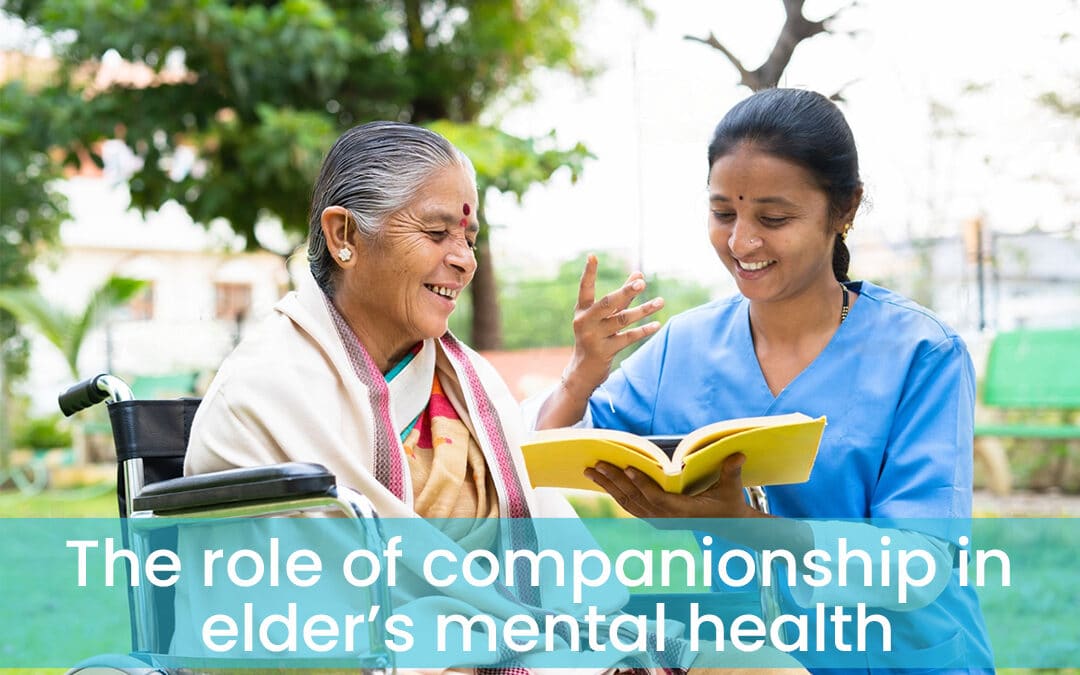As individuals enter their senior years, typically beyond the age of 60, they often grapple with a range of health challenges. While significant attention is rightly placed on providing seniors with the necessary medical care, their senior mental health during this phase of life is frequently overlooked.
Amidst the journey of treatment and recovery, it is imperative to not only address physical health but also to nurture one’s mental health. This stage of life can bring forth not only physical ailments but also mental struggles, including feelings of loneliness, depression, and isolation. Such emotional challenges may arise from limited social interactions, geographical distance from loved ones, or a myriad of other factors affecting elderly mental wellbeing.
Recognizing and addressing the holistic health of our senior citizens is crucial to ensuring their overall quality of life and well-being. Companionship for seniors is an essential aspect of achieving this goal.
Companionship:
Social connections play a significant role in the mental well-being of seniors. Elders often yearn for meaningful social connections where they can openly share their experiences and well-being concerns. Such interactions are not only essential for their recovery but also play a pivotal role in their overall quality of life.
We recently had the privilege of hearing from one of our elders who successfully completed their rehabilitation journey. What stood out in her experience was the profound appreciation for the daily social interactions she enjoyed with fellow elders and staff during her time at KITES Senior Care. This is a testament to the positive impact of companions for seniors. What sets KITES apart is our unwavering commitment to treating our elders as individuals on a path to joyful recovery and rejuvenation, rather than merely patients undergoing rehabilitation. Our dedicated staff members are meticulously trained to approach each elder with empathy, fostering collaboration and meaningful interactions, which are crucial for emotional support for elderly individuals.
Conversations:
Conversations are a vital aspect of companionship. Frequently, our dedicated team members engage in meaningful conversations with our elders. Some of these remarkable seniors possess unique talents, and our staff regularly check their work, compliment their accomplishments, and engage in enriching discussions. Through this approach, our elders not only feel heard but also cherished. Our ultimate objective is to create a nurturing and welcoming environment where our seniors can thrive safely and freely.
Activities:
Participation in various activities can be a powerful tool for seniors in rejuvenating their minds. Here at KITES Senior Care, we offer a range of activities designed to help our elders relax and reminisce. One recent highlight was our clay molding session, which brought immense joy to our seniors, resulting in some remarkable creations.
During this activity, our elders sculpted items from their cherished memories. One of our elders in particular, crafted rotis and cooking utensils from clay, expressing her longing for the art of cooking. She fondly shared stories of her culinary expertise, recounting how everyone used to relish her meals. The act of sharing these memories undoubtedly stirred the past to life once more, showcasing the positive impact of technology solutions to foster social connections among seniors.
Conclusion:
Taking care of elders needs a lot of empathy, and the caregiver has to be compassionate. Companionship for seniors plays a pivotal role in senior care, offering crucial emotional support and enriching the overall quality of life for elderly individuals. The importance of companionship cannot be emphasized enough, as it addresses common challenges such as feelings of loneliness, isolation, and potential mental health issues that seniors often encounter.
The advantages of senior care centered on companionship are manifold. Seniors can experience a range of positive outcomes, including enhanced mental and emotional well-being, a reduction in feelings of loneliness and isolation, heightened overall happiness and contentment, improved sleep patterns, cognitive function in aging adults, and a strengthened immune system response as a result of this companionship-focused approach to care.

